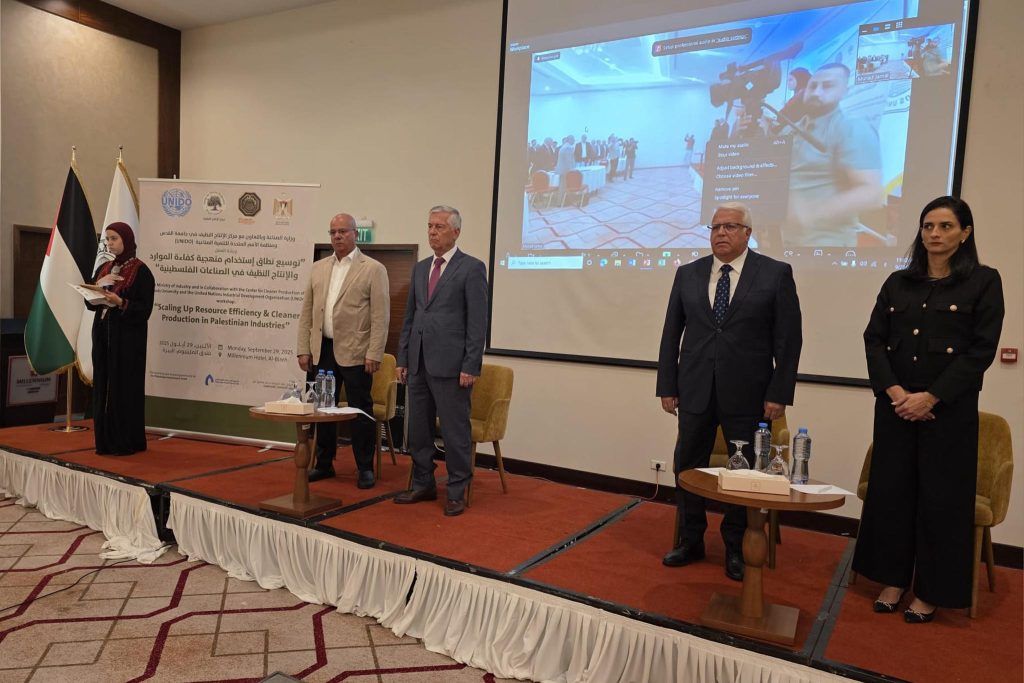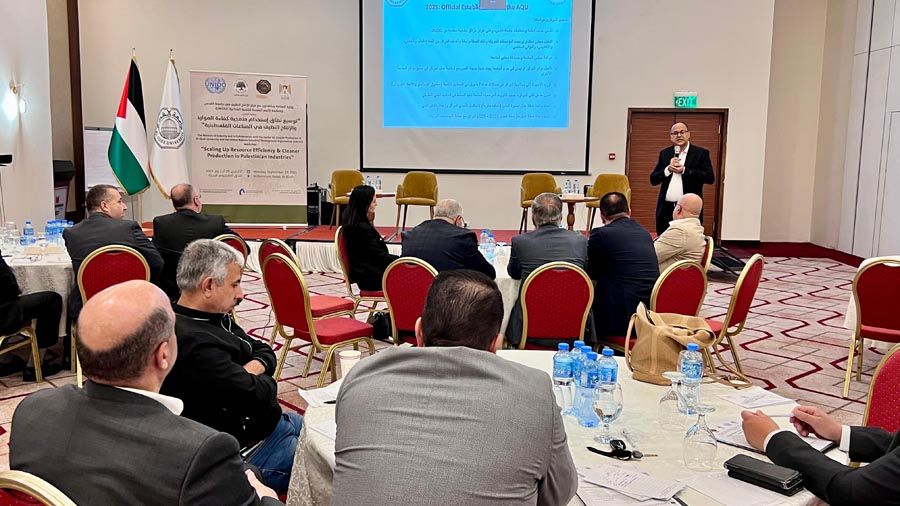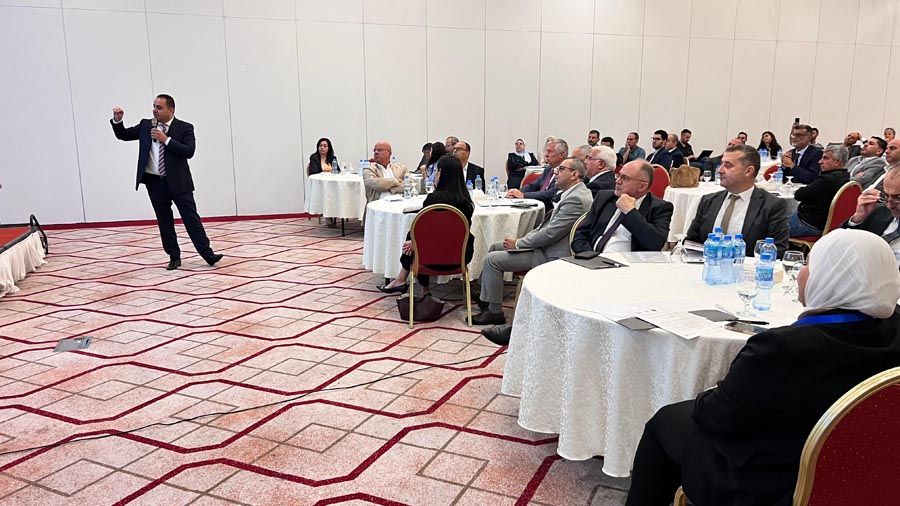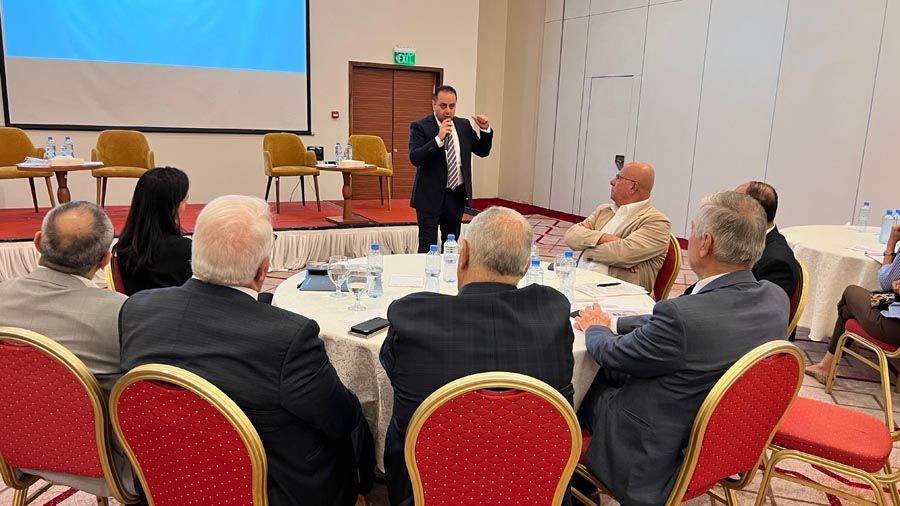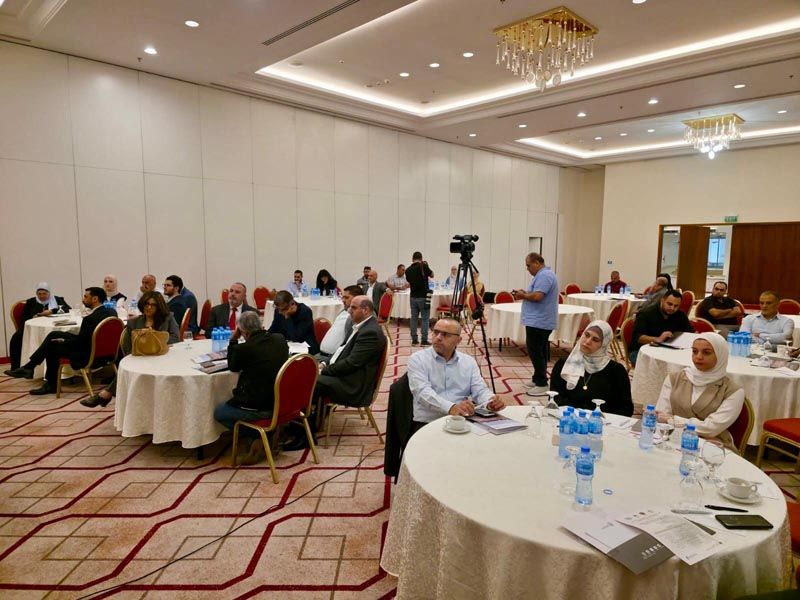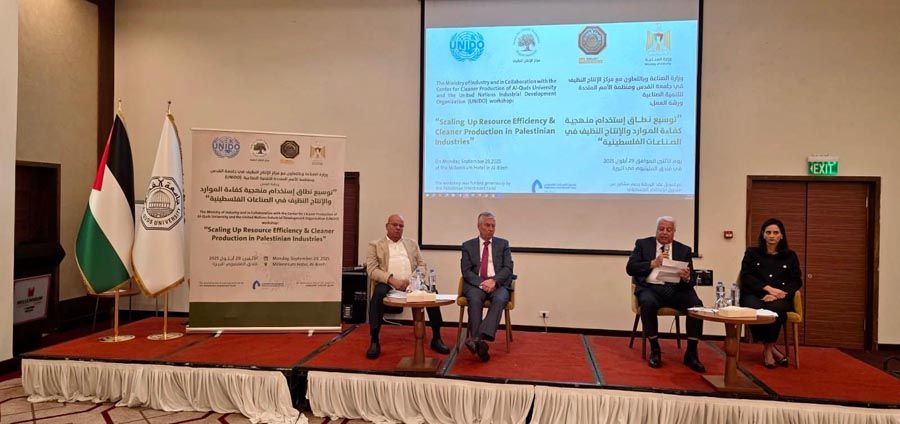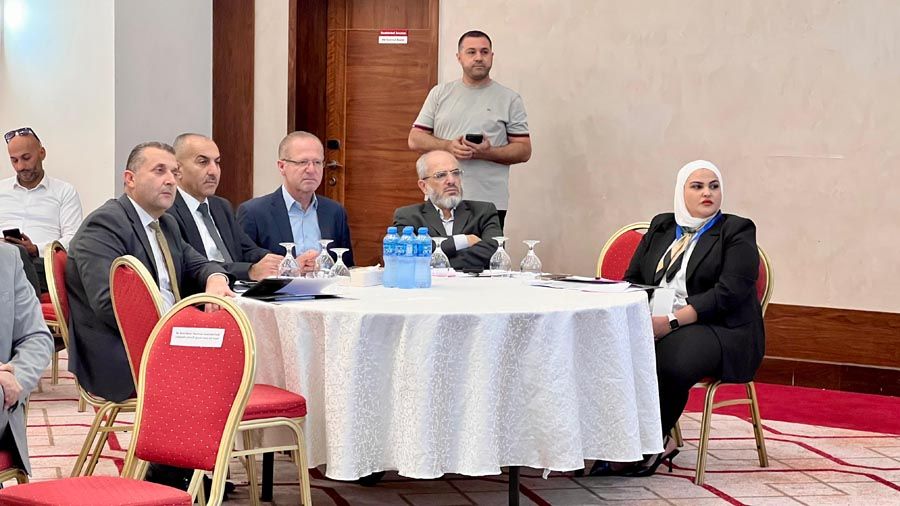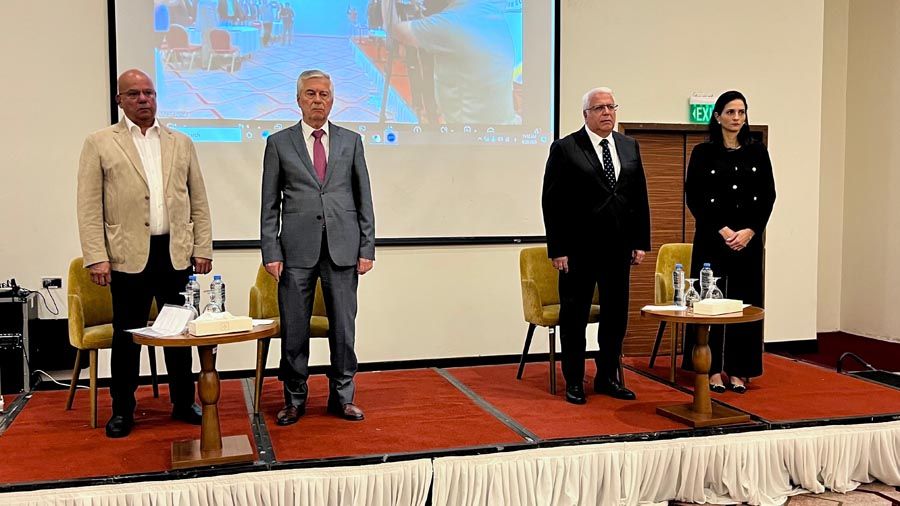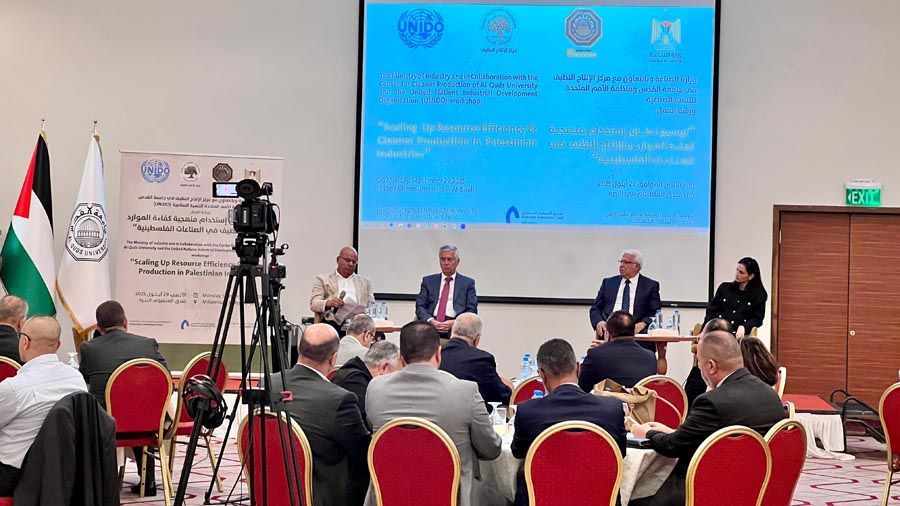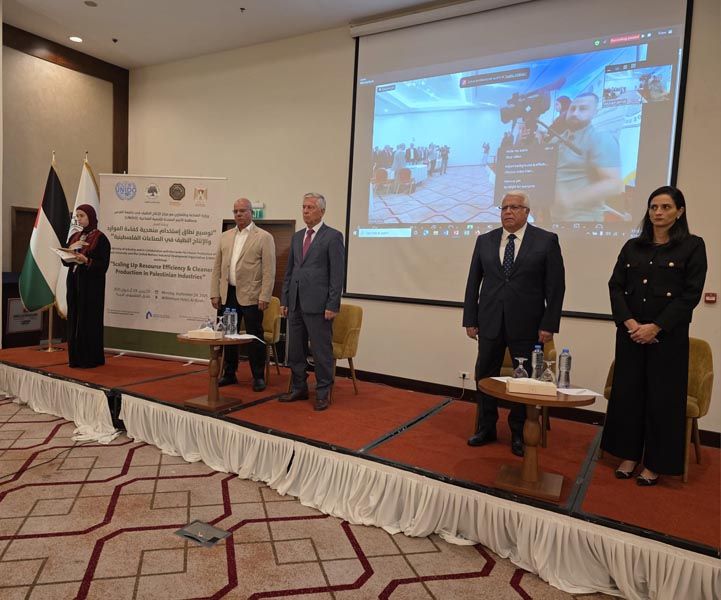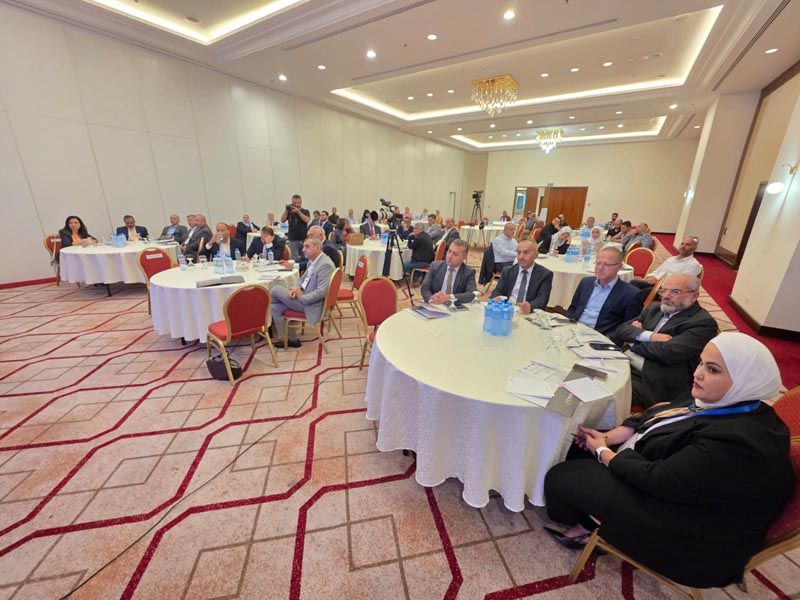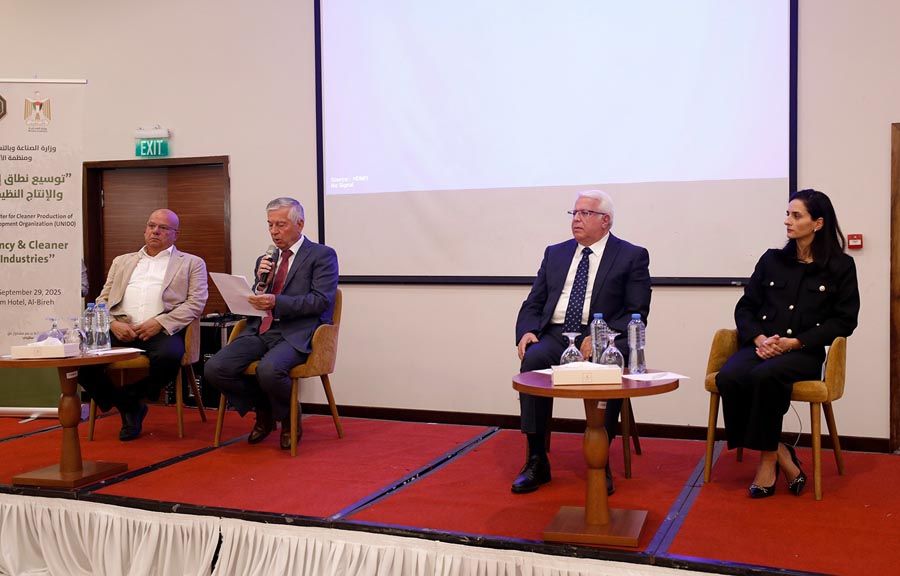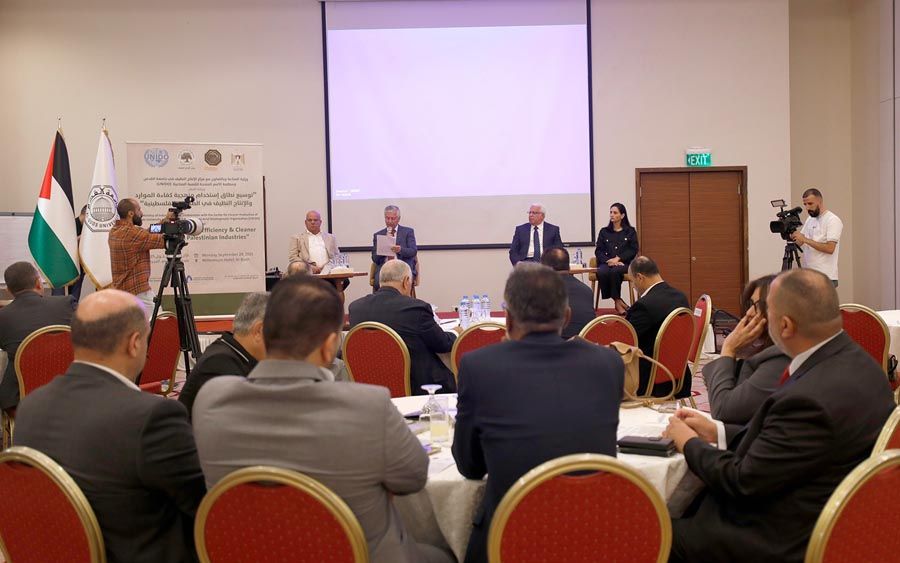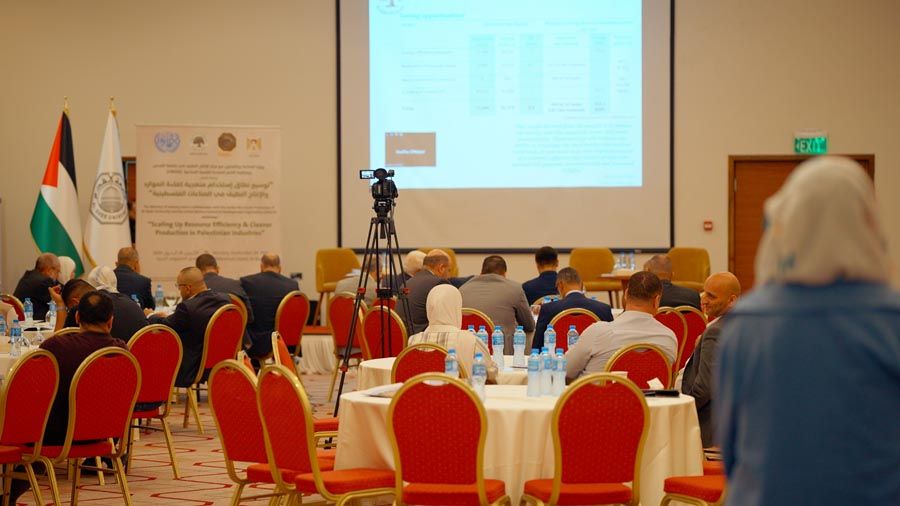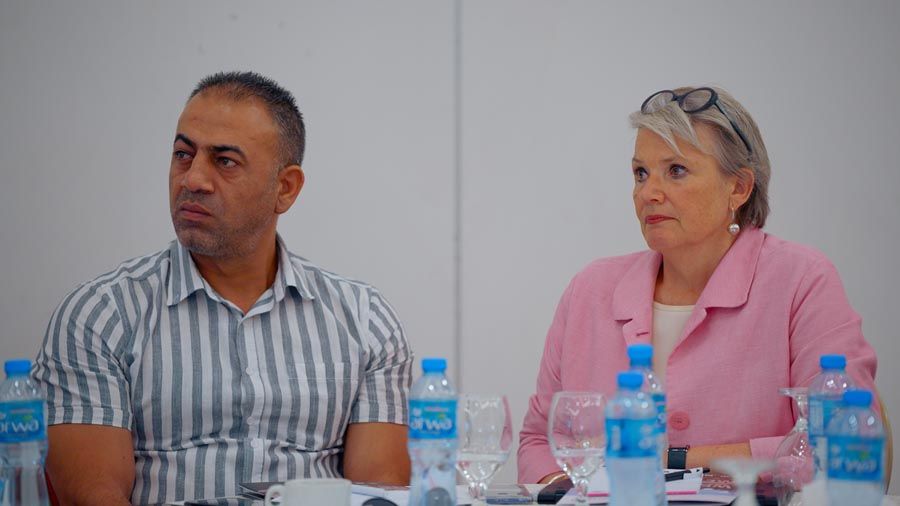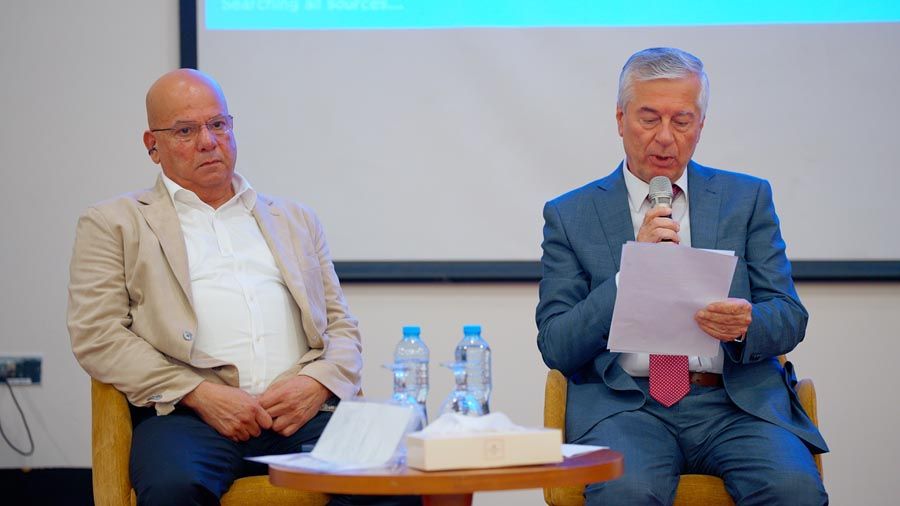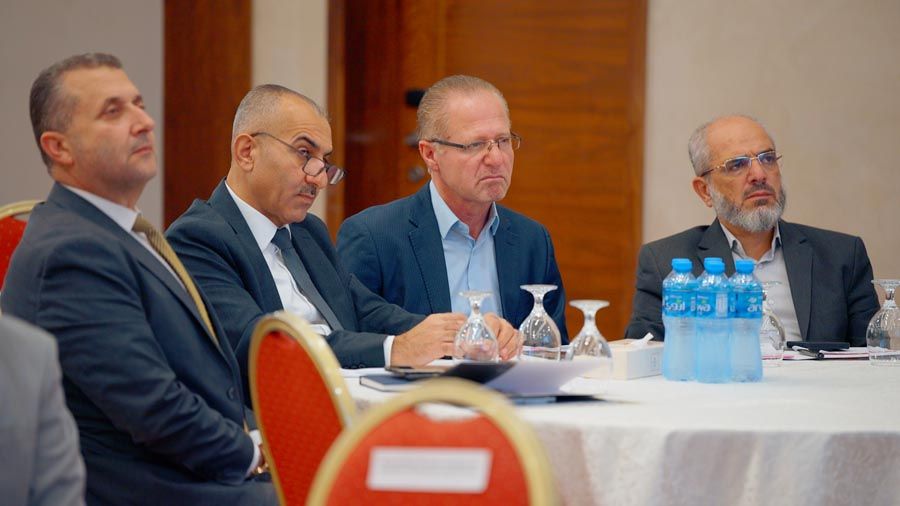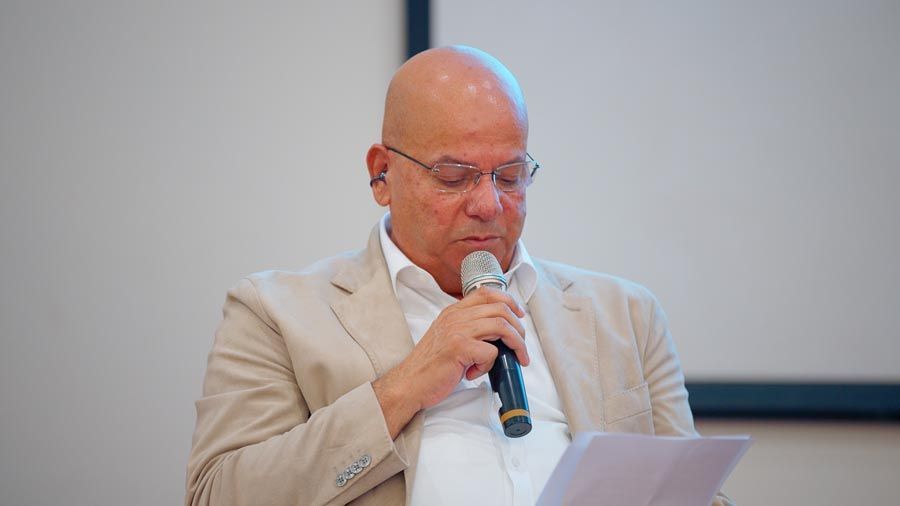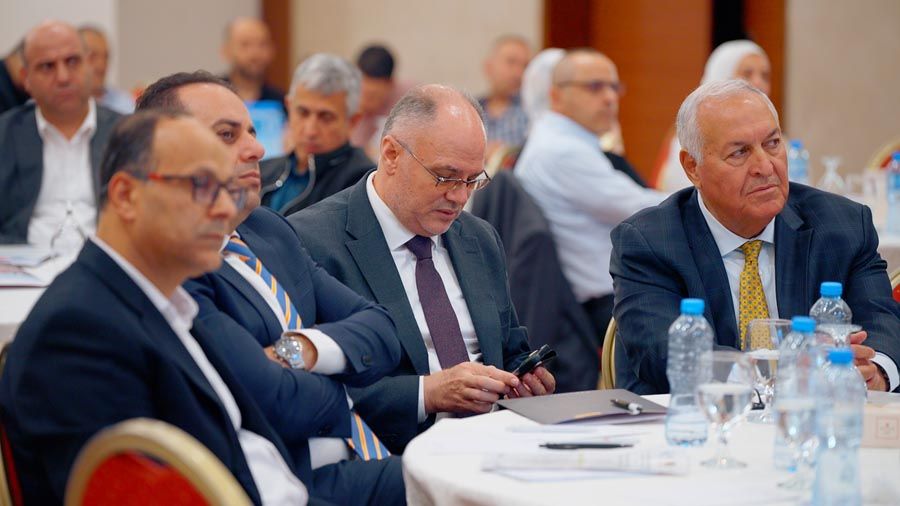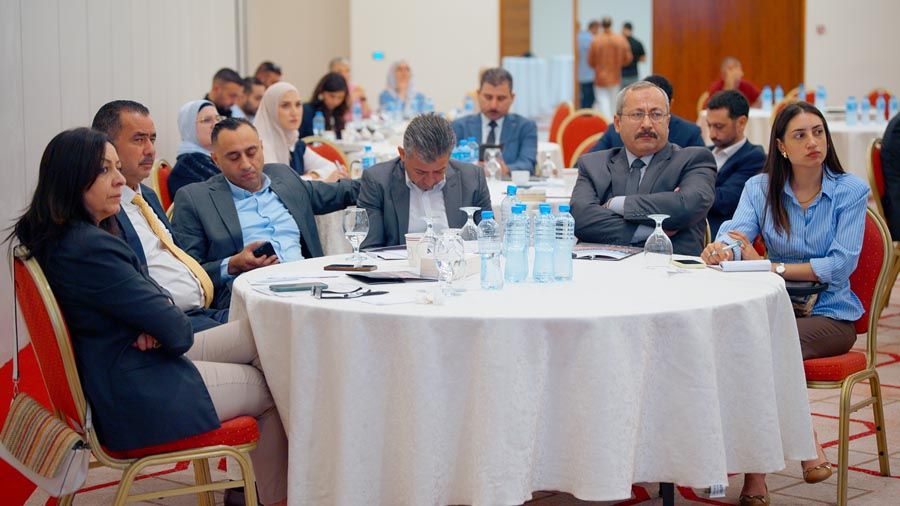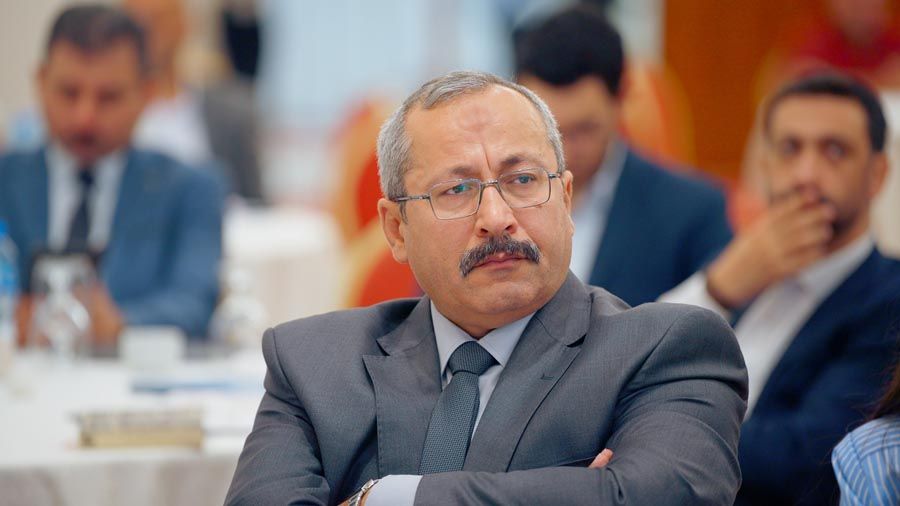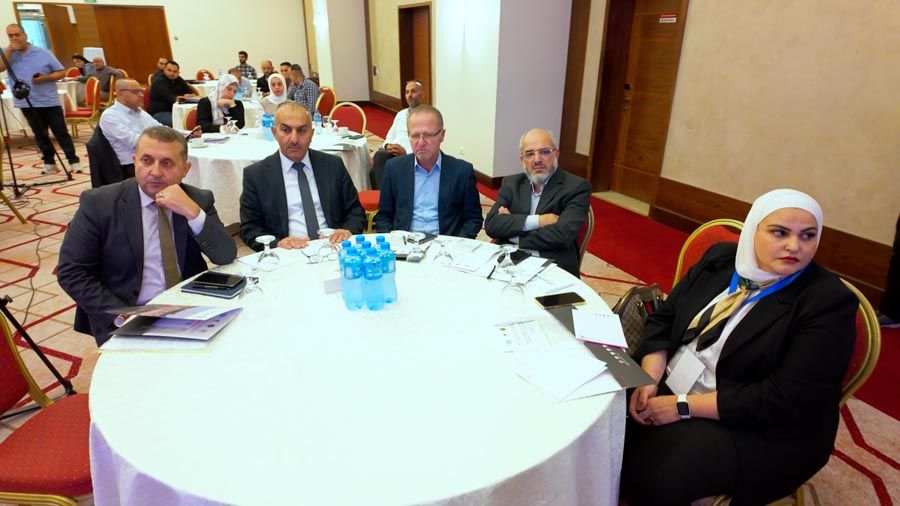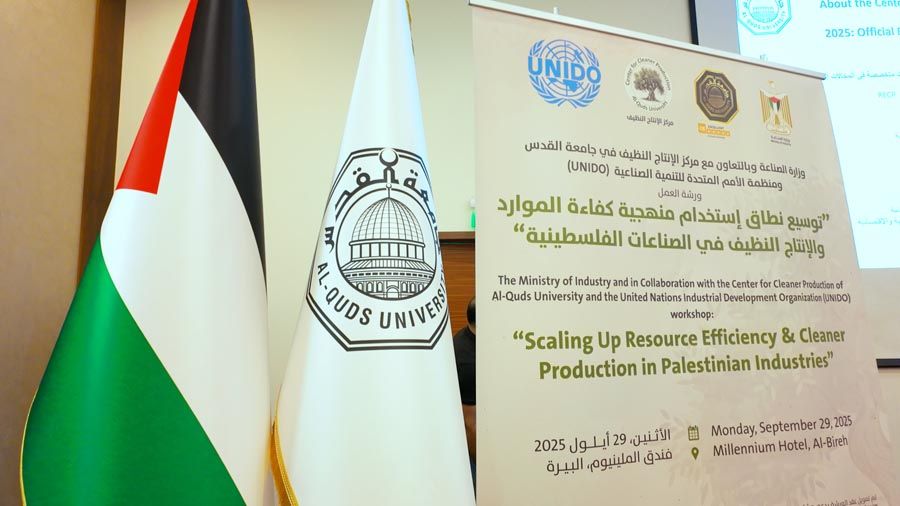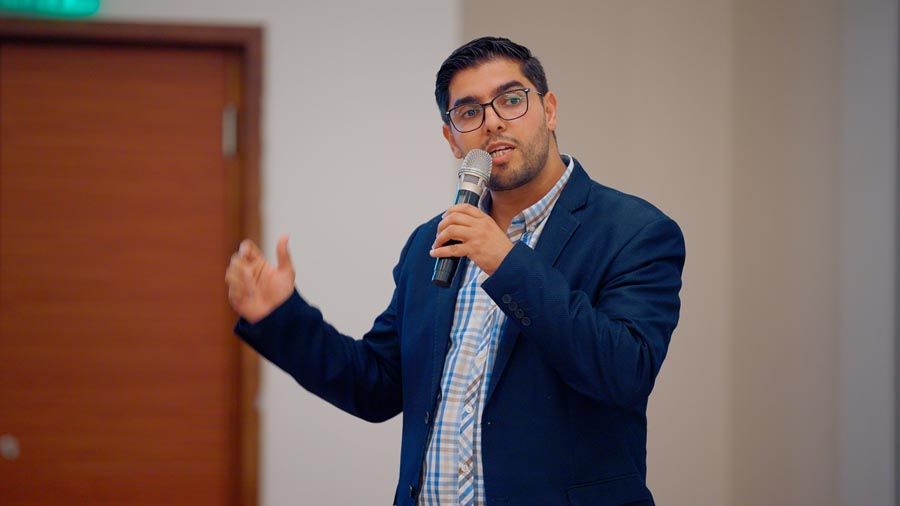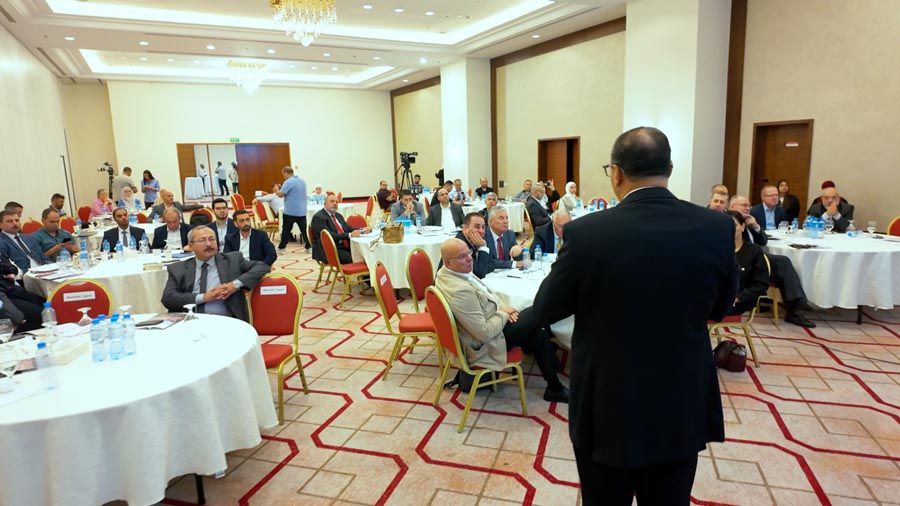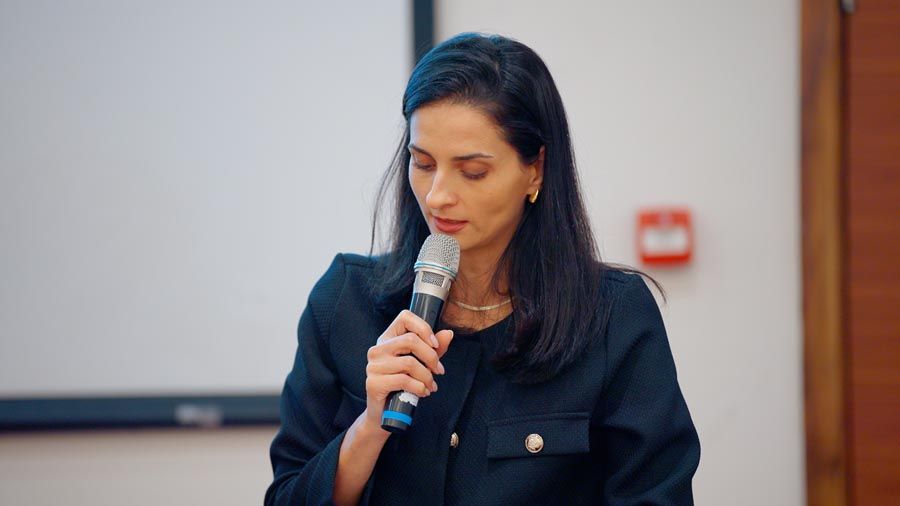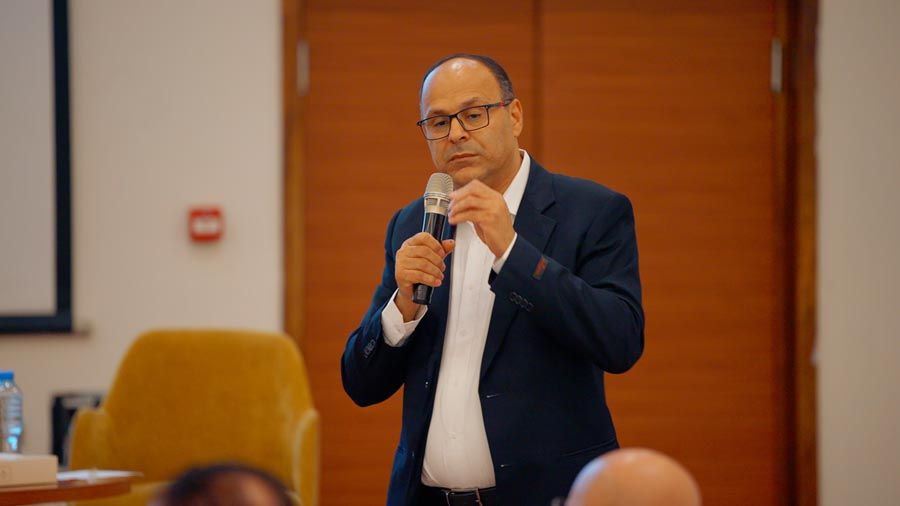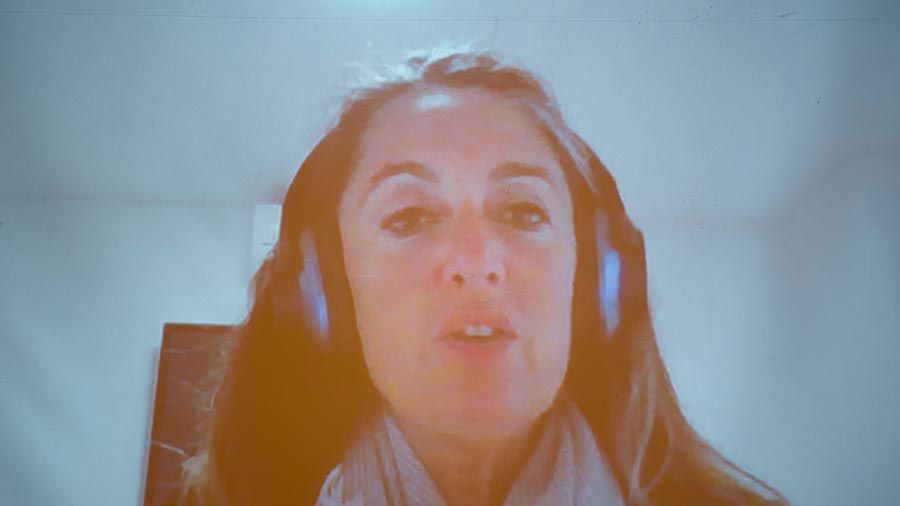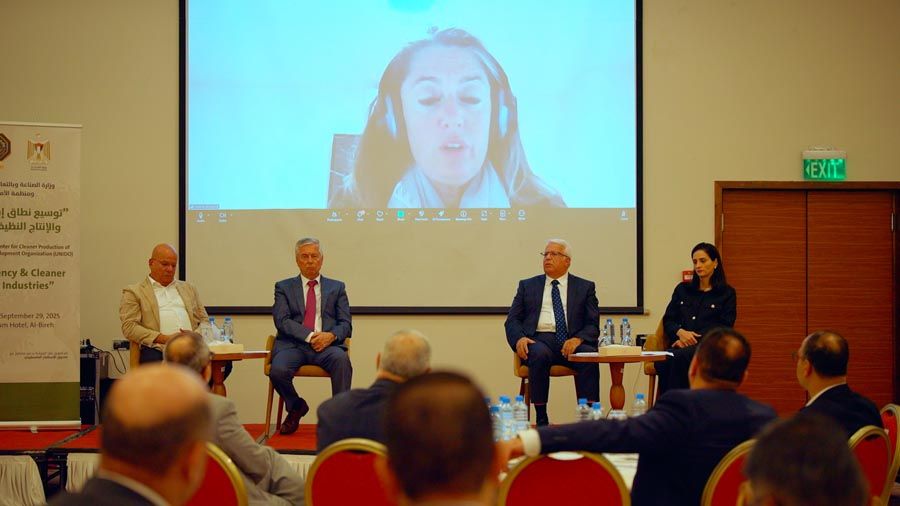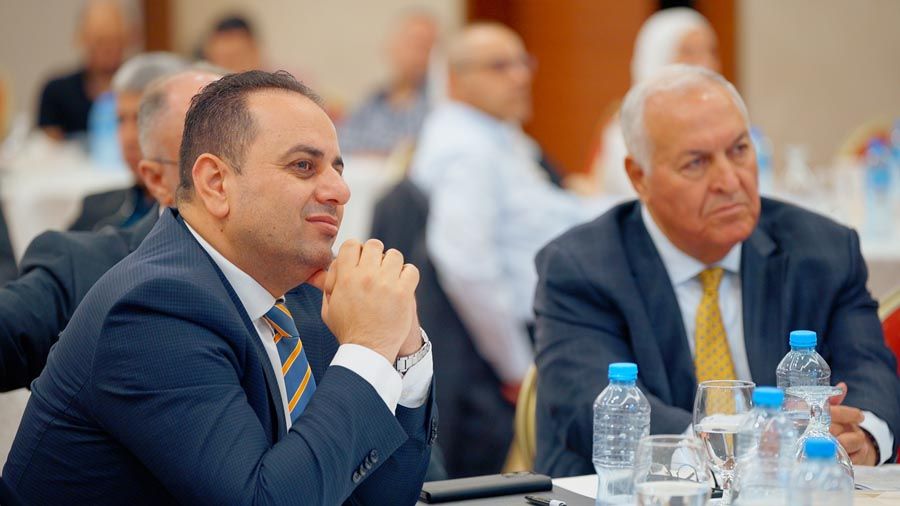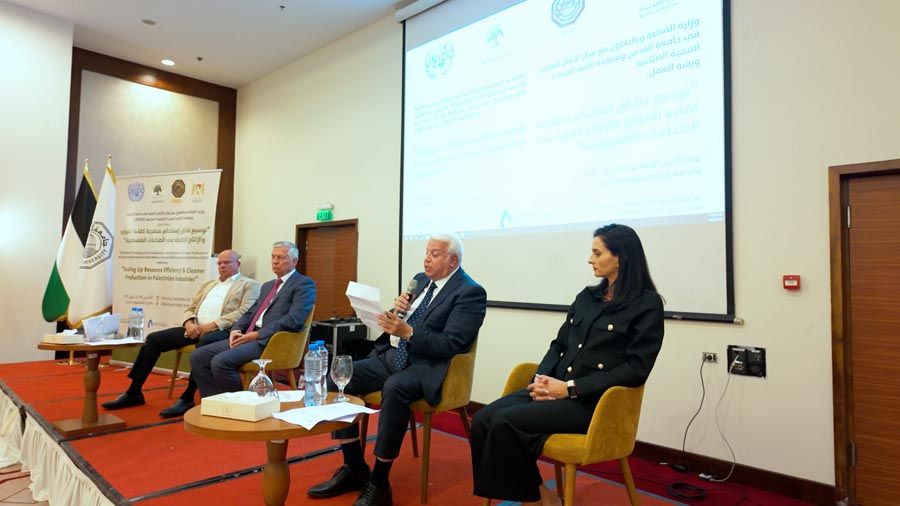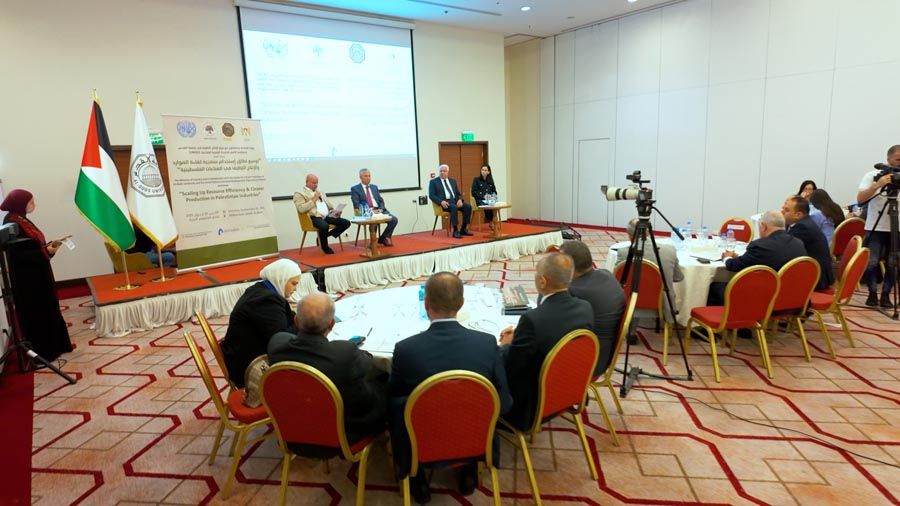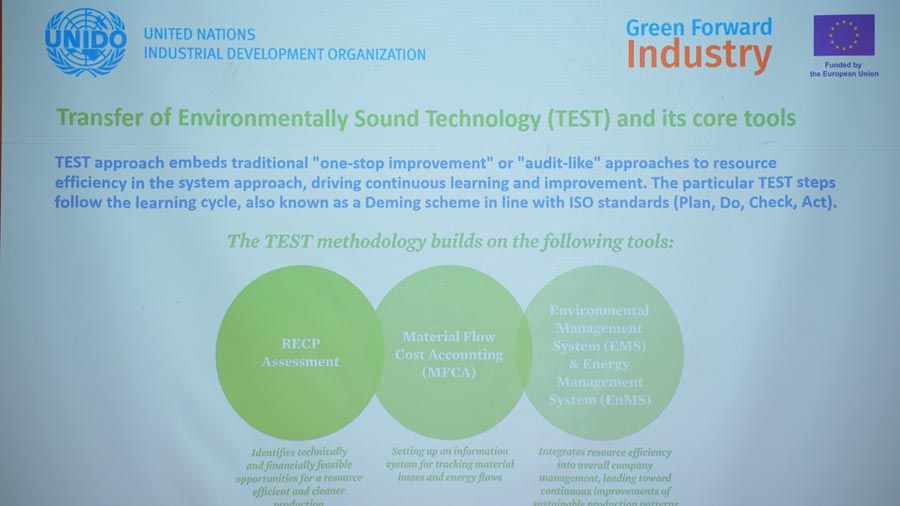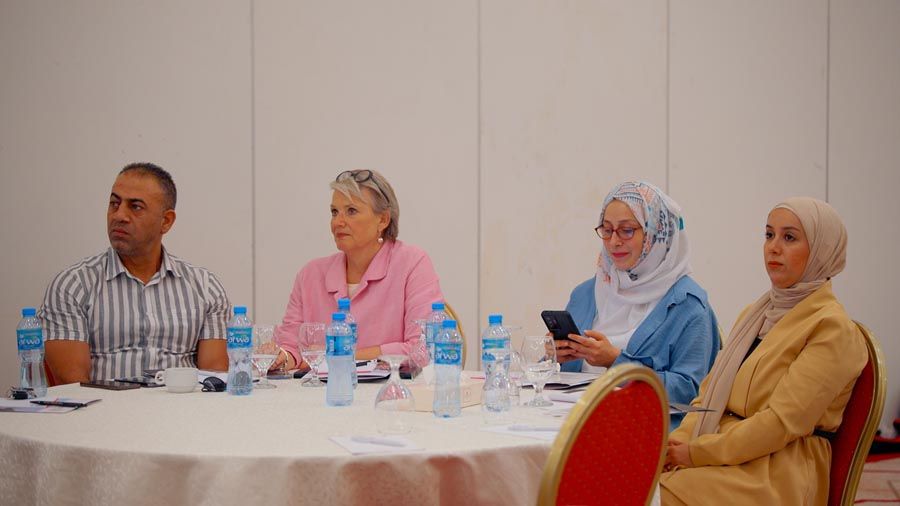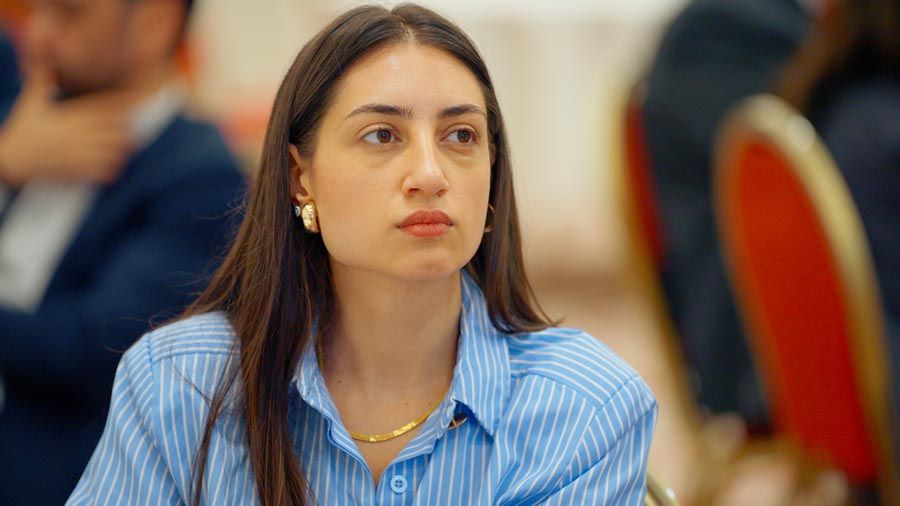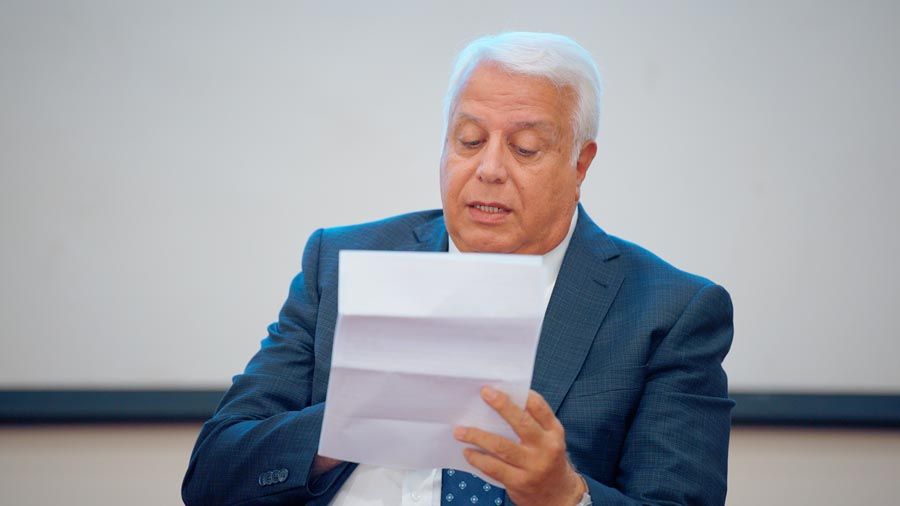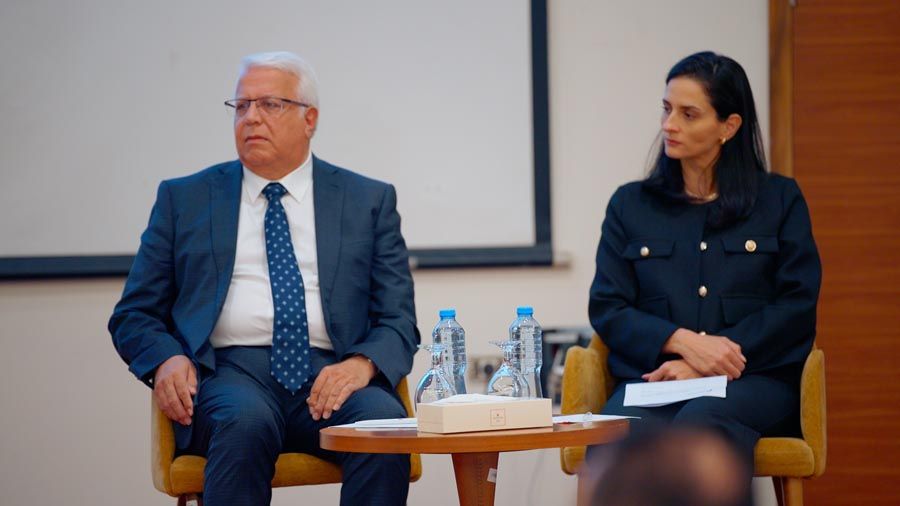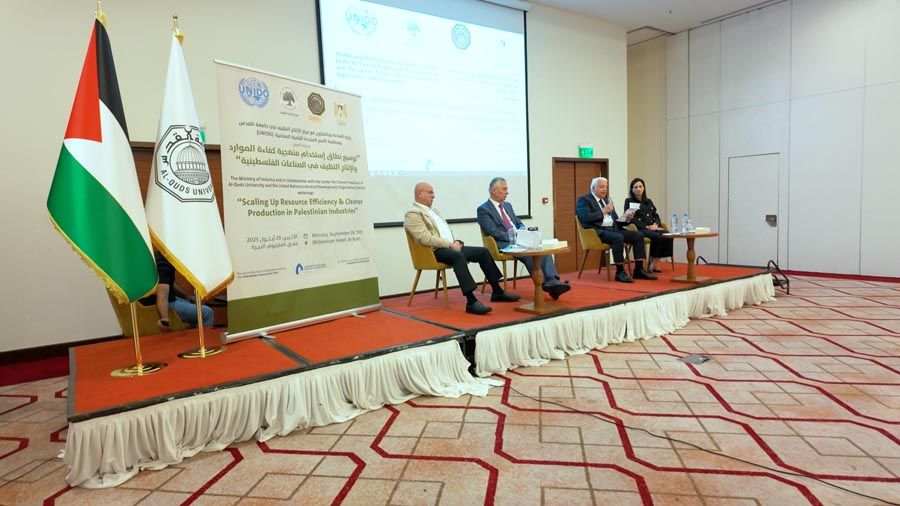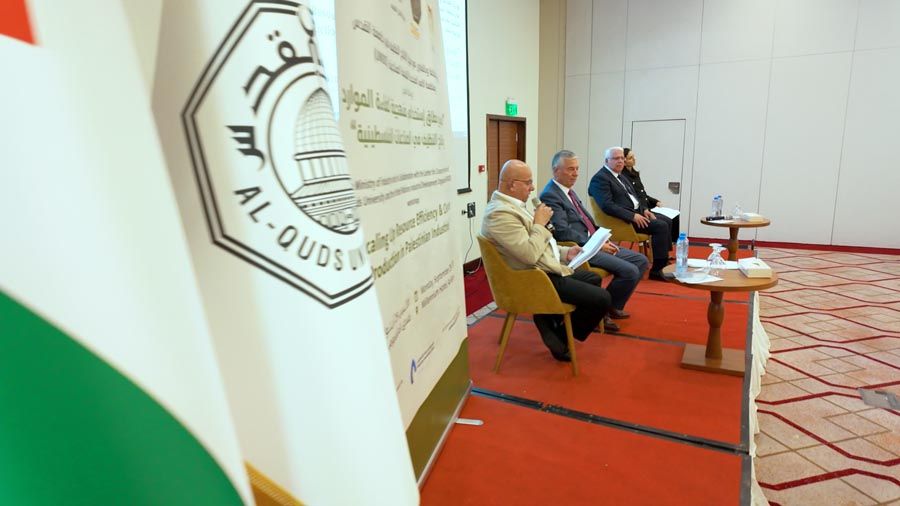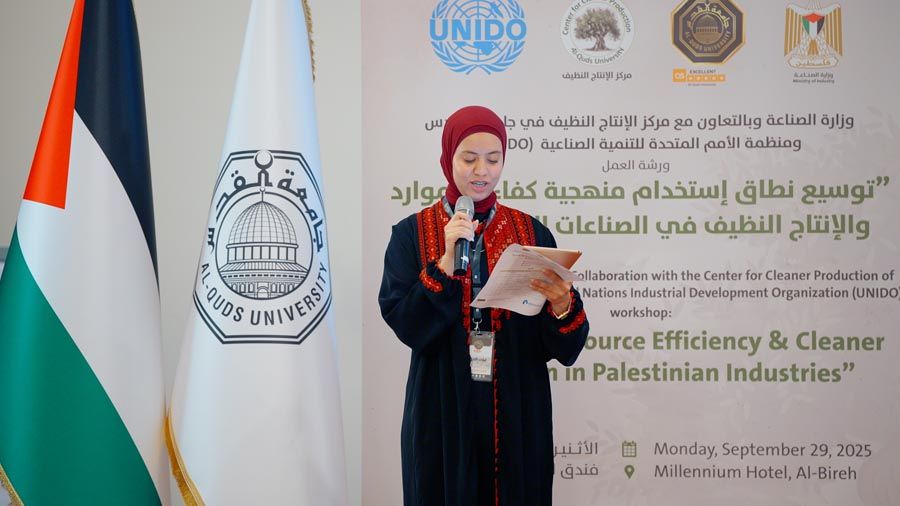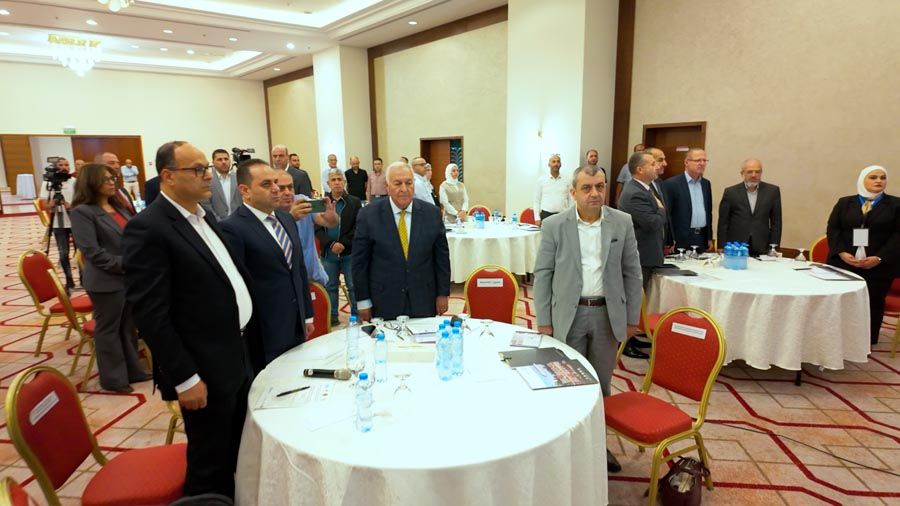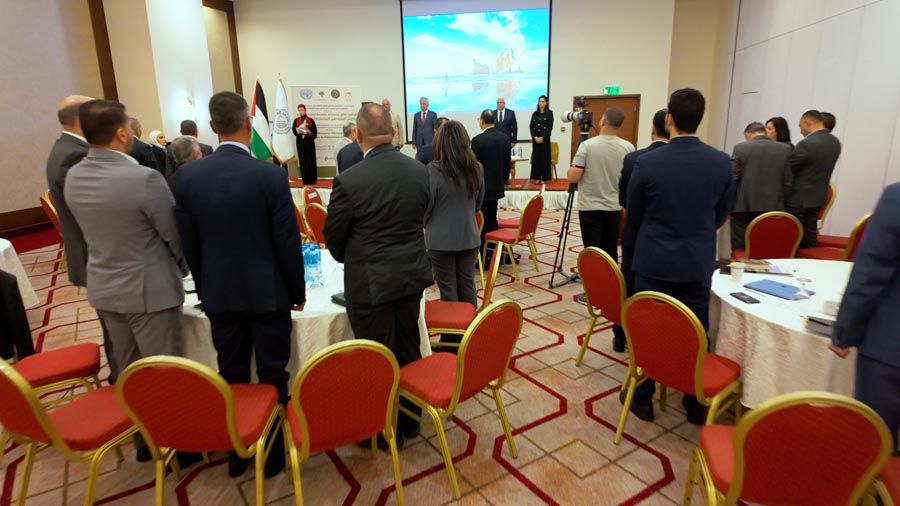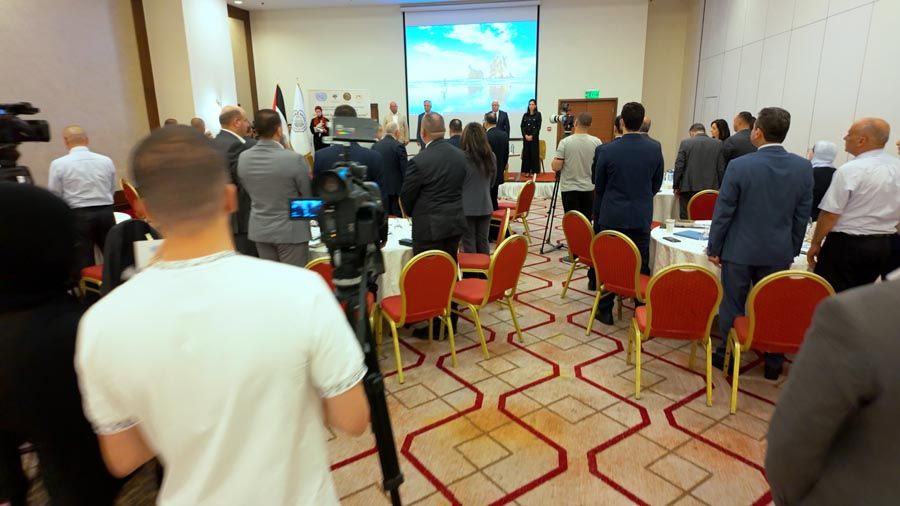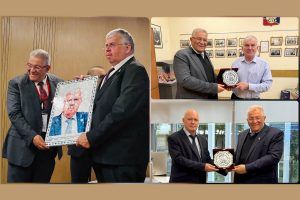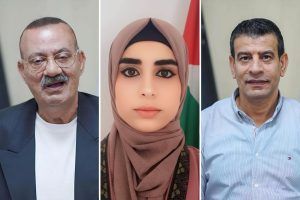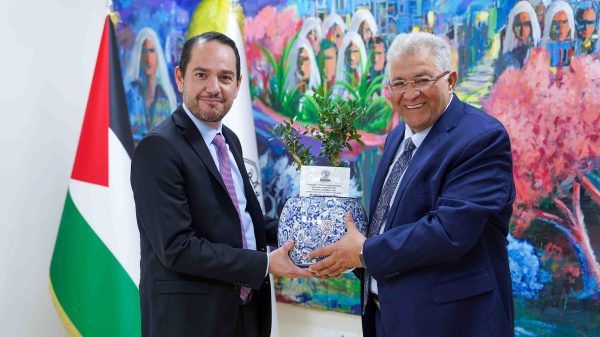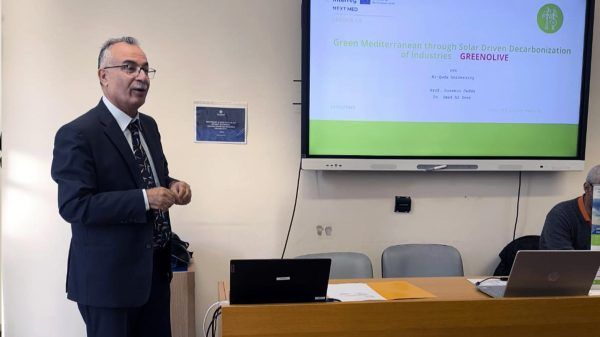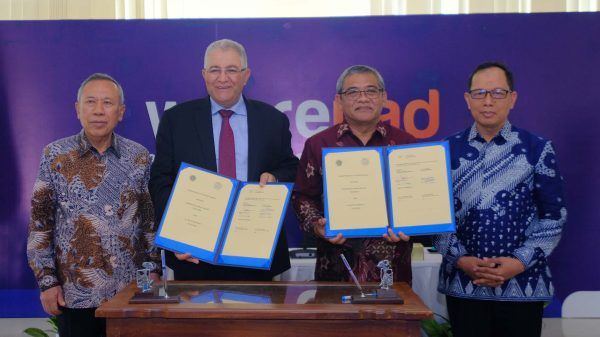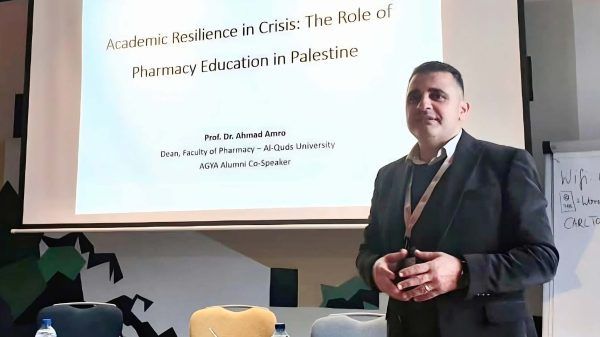Al-Quds University and the Ministry of Industry organized a specialized workshop entitled “Expanding the Use of the Resource Efficiency and Cleaner Production (RECP) Methodology in Palestinian Industries,” in cooperation with the Cleaner Production Center at Al-Quds University – Beit Hanina Campus, the United Nations Industrial Development Organization (UNIDO), and with the support of the Palestine Investment Fund (PIF).
This event came as part of the joint national and international efforts to enhance the sustainability of the Palestinian industrial sector and to raise its competitiveness amid growing economic and environmental challenges.
The workshop was inaugurated in the presence of representatives from governmental, academic, and industrial sectors, along with a number of international experts and representatives of development institutions.
In his opening remarks, Minister of Industry Arafat Asfour stressed that the workshop is being held at a critical political and economic juncture for Palestine, reaffirming the Palestinian government’s commitment to developing a more efficient and sustainable national industrial sector that reflects the resilience of the Palestinian people and their ability to build a strong, regionally and internationally competitive economy. He emphasized the need to shift toward cleaner and more resource-efficient production models to address global environmental and economic challenges.
For his part, Prof. Imad Al-Khatib, Executive Vice President for Al-Quds Campus, explained that the university took the initiative to establish the Cleaner Production Center at its Jerusalem campus to serve as a national and scientific hub supporting industrial and economic institutions. He affirmed the university’s belief in the importance of integrating academic research with industrial application.
He added that achieving economic and industrial development requires an active and dynamic innovation system based on cooperation among three key sectors: academia, industry, and government — all working together toward the national goal of community and economic development and enhancing Palestine’s competitiveness.
In the same context, Roberta De Palma, Project Manager of Environmentally Sound Technology Transfer at UNIDO, reaffirmed the organization’s ongoing commitment to supporting the Palestinian government’s efforts to develop the industrial sector. She stressed that implementing cleaner production standards is a key entry point to achieving both environmental and economic sustainability.
Meanwhile, Rania Mar’i, Chairperson of Palestine for Development, noted that the Palestine Investment Fund’s strategy focuses on strengthening the industrial sector as a cornerstone of the national economy, emphasizing that supporting cleaner production initiatives is a central part of the Fund’s approach to sustainable development.
Nassar Nassar, Chairman of the Palestinian Federation of Industries, reaffirmed the Federation’s commitment to applying the cleaner production methodology across all industrial sectors, pointing out that promoting a culture of sustainable production will directly benefit national industries by reducing costs, improving quality, and expanding export opportunities to new markets.
The workshop featured extensive discussions among participants on ways to generalize and promote cleaner production applications in Palestinian industries, presenting successful local and international experiences and exploring practical mechanisms to help Palestinian factories adopt more resource-efficient practices, reduce emissions, and minimize environmental impacts.
During the workshop, UNIDO’s cleaner production methodology was presented, along with success stories from companies and factories applying it. The event comes within the Ministry of Industry’s efforts to promote the sustainability and competitiveness of the Palestinian industrial sector in cooperation with academic institutions — supporting economic development and the resilience of the Palestinian people.
The workshop concluded by reaffirming that achieving industrial sustainability in Palestine requires joint efforts among academic institutions, the industrial sector, government bodies, and international partners. Such collaboration contributes to strengthening the resilience of the Palestinian people and supporting the development of a robust national economy capable of competing regionally and globally.


